Eighteen kinds of martial arts in various countries attack IS: cutting off funds, knocking on the roof and cyber warfare.
BEIJING, April 28 (Xinhua) Since the United States took the lead in setting up an alliance against the extremist organization "Islamic State" (IS) in 2014, the crackdown on IS in many countries around the world has lasted for two and a half years. The United States, Britain, Russia and other countries have "shot" in order to weaken and disintegrate the power of extremist organizations.
Worried about falling into the quagmire of regional wars again, western countries, including the United States, refused to send substantial ground troops, but carried out "long-range" strikes to cooperate with local armed ground operations. The U.S. military says its attack has cost $7 billion. What measures have countries taken, and what are the effects of these costly actions?
[air strike]
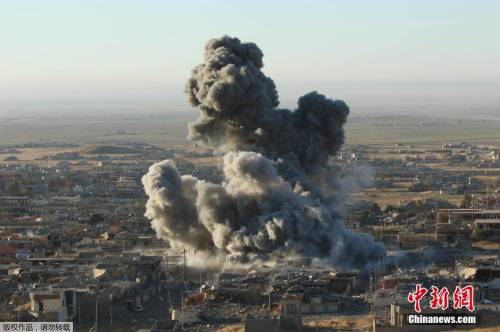
Air strike is the most commonly used strike method against the "Islamic State" in countries such as the United States and Russia. The latest data shows that the United States and Russia have launched 20,000 air strikes against IS, eliminating a large number of terrorists.
On the battlefield against extremist organizations, drones are one of the weapons of air strikes. On November 12, 2015, the US military drone killed the British militant "Saint John". The terrorist has appeared in several videos and killed western hostages.
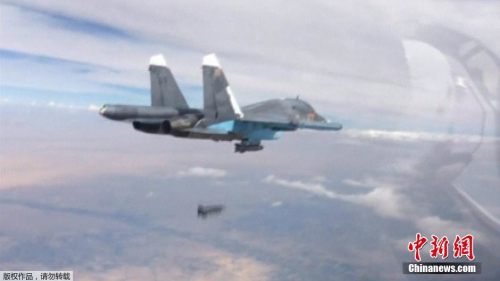
However, air strikes are not without risks. The U.S. Department of Defense recently pointed out that 41 civilians have been killed and 28 others injured in the U.S.-led air strikes in Iraq and Syria since the operation began in August 2014.
In order to reduce the casualties of innocent civilians, the U.S. military began to use Israel’s "knocking on the roof" tactics in air strikes and fired missiles without explosives above the target to warn civilians. It IS reported that the US military used this tactic in air strikes against IS’s financial stronghold in Mosul. According to the US military, air strikes have destroyed more than $800 million in cash from extremist groups.
[Consultant Assistance]
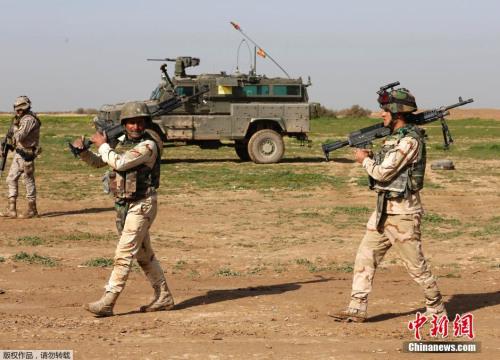
For fear of being dragged into another quagmire of regional conflicts and local wars, the US government has always refused to send ground troops to Syria and Iraq on a large scale, but sent "teams" to provide training and strategic support.
On April 18th and 25th, the United States announced that it would send more troops to Iraq and Syria respectively. As a result, the number of American troops in Iraq will exceed 4,000, and the new personnel will be "embedded" in the Iraqi troops at the front line to provide help. The people sent to Syria are mainly non-combatants. US President Barack Obama has repeatedly stressed that they will not go to the front line, but go to northern Syria to train opposition forces and help recover Raqqa, the "extremist organization base camp".
On the other hand, Russian President Vladimir Putin announced his withdrawal from Syria in March, but Russia still has personnel to assist the Syrian government. Not long ago, Russian engineers just completed the task of demining the ancient Syrian city of Baal Milla, dismantling nearly 3,000 explosive devices.
Ground combat
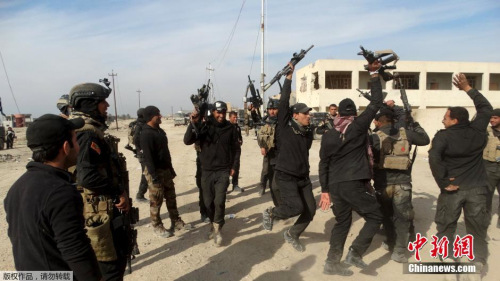
Although many countries around the world have provided air combat assistance to the Syrian and Iraqi governments, the main force of "close combat" with the "Islamic State" armed forces on the ground is still the local government and civilian armed forces.
In Iraq, the local government recently completely recovered the city of Hitt, which is located on a supply line of the "Islamic State" between Iraq and Syria and has an important strategic position. The next goal is to recover Mosul, the second largest city in the country.
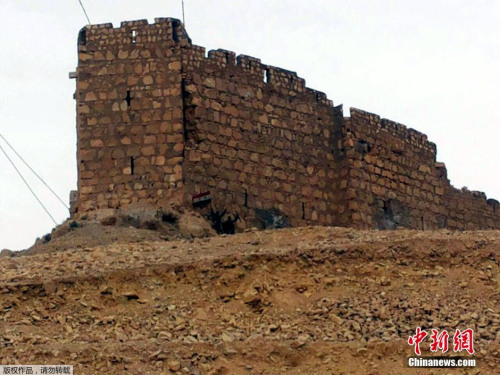
With the support of Russian air strikes, the Syrian government regained control of the ancient city of Baal Milla from the "Islamic State". For Syrian President Bashar al-Assad, winning Baal-Milla IS a "milestone victory", which has greatly depressed IS morale.
The recent successive victories have made the "Islamic State" no longer a formidable enemy on the battlefield between Iraq and Syria. It is said that the "Islamic State" has lost 40% of the land it once controlled in Iraq. The Iraqi commander said, "Their morale was shattered." However, IS also controls important cities such as Mosul and Raqqa, and it still has a long way to go to completely defeat this extremist organization.
[Network attack]

In addition to fighting extremist organizations with live ammunition, in cyberspace, countries are also fighting an "invisible war" with extremist organizations. Because the "Islamic State" especially emphasizes communication with potential supporters through social media, the US government mobilized technology companies such as Facebook to join this cyber war against extremist organizations.
In addition, the US Cyber Warfare Command will also launch cyber attacks on the "Islamic State". It is understood that the US plan is to copy or modify their information and guide extremists to areas that are more likely to be attacked by American drones or local ground forces.
At other times, when the allied forces want to bomb the warehouse where cash is stored, the US military can launch auxiliary operations to interfere with electronic transfer and transfer payment.
US Defense Secretary Carter said that through cyber attacks, the United States will be able to undermine the organization’s ability to disseminate information, recruit new members, give instructions and perform daily operations. (End)